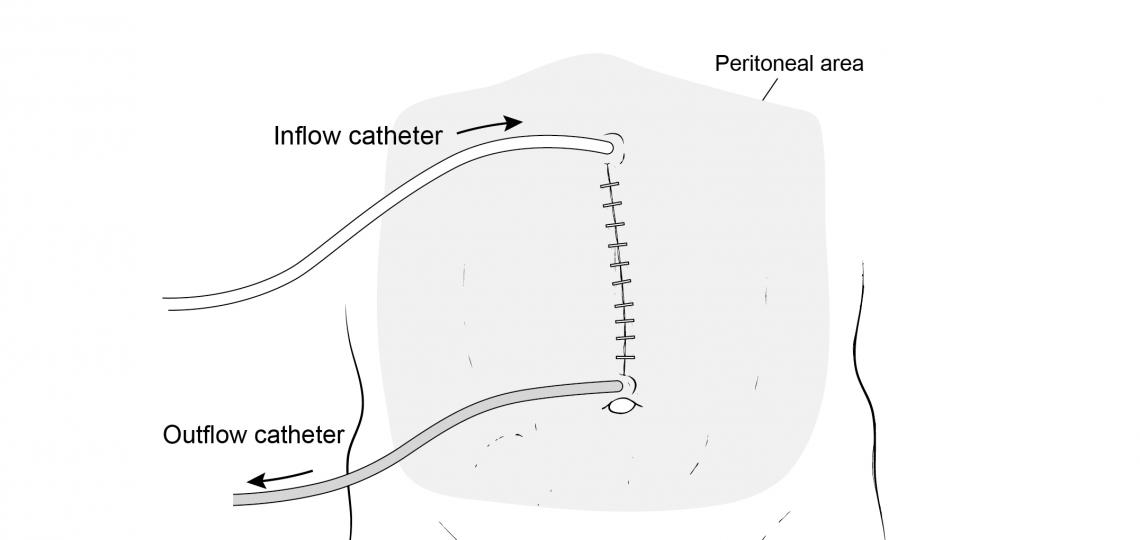Chemoperfusion is a highly specialized procedure done at only a few centers throughout the country. It is designed to treat peritoneal (area that contains the abdominal organs) surface malignancies such as appendiceal carcinoma, mesothelioma and carcinomatosis from gastrointestinal malignancies.
During the procedure, a surgeons performs cytoreductive surgery to remove all visible tumors. Once all visible cancerous nodules had been removed, they target the microscopic cancer cells with a direct chemotherapy bath (the intraperitoneal chemoperfusion) immediately after surgery. The goal is to destroy as many microscopic cancer cells as possible to extend survival and prevent cancer recurrence.
Hyperthermic Intraperitoneal Chemoperfusion
Hyperthermic intraperitoneal chemoperfusion combines surgery and a novel form of chemotherapy that has been shown to significantly improve survival for peritoneal mesothelioma and other abdominal cancer patients. Unlike other forms of chemotherapy given as a pill or injection, HIPEC delivers the medicine by adding it to heated saline solution and pumping the mixture directly into the patient’s abdomen immediately after surgery. The heated cancer cells start to die when heated to around 104 degrees, while normal cells can survive up to 111 degrees, much like a fever fights off infection.
The typical HIPEC patient will have stage IV abdominal cancer such as peritoneal mesothelioma.








 Credit
Credit
